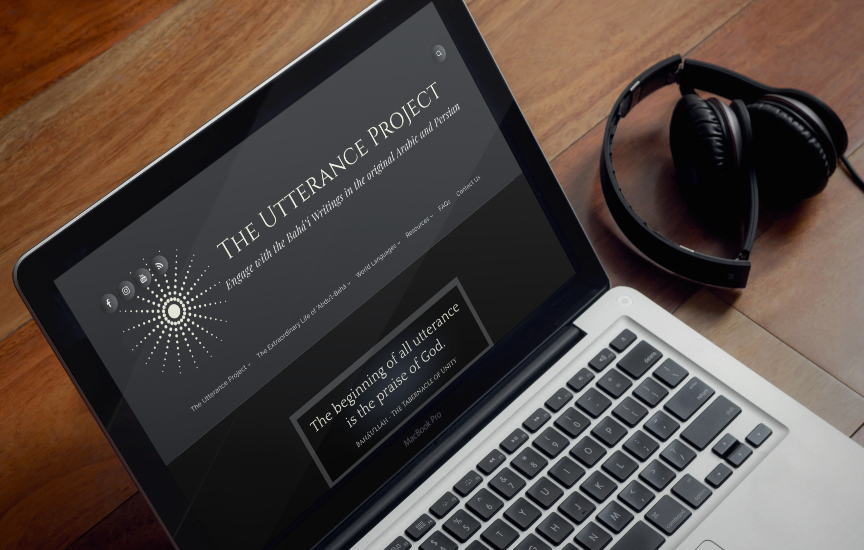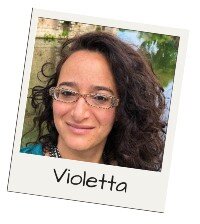Highlighting Australia
- As a proudly Australian initiative, we’re excited to showcase a collection of Australian stories, music, tributes and more.

Join activities, celebrations, study groups, spiritual empowerment and education programs for young people, and more.
Baha’i beliefs address essential spiritual themes for humanity’s collective and individual advancement. Learn more about these and more.

Featured in: Study Circles & Study Materials and Devotional Gatherings
A study circle is a small group that meets to study the course materials from the Ruhi Institute. This collection contains resources related to study circles, as well as resources to assist anyone with deepening their understanding of the Baha’i Writings.
Baha’is believe in the power of prayer and you’ll find Baha’is and their friends, throughout the world, getting together to pray. This is often referred to as a ‘devotional gathering’ or ‘devotional meeting’, and they happen in diverse settings, whether in cities or villages. These gatherings are open to all and are intended to embrace that attitude of prayer and practice of devotion that is universal to all religions.

Translating anything from one language to another is a complex and intricate exercise. For example, in her Baha’i Blog article “Why Do the English Translations of the Baha’i Writings Use Elevated Language?” Layli explores some aspects of how the Baha’i Writings are translated into English.
Violetta Zein and Adib Masumian are personally interested in the sounds and musicality of the Baha’i Writings in their original languages of Arabic and Persian so they have created an online project that allows non-Arabic and non-Persian speakers to experience this first-hand.
We know that the transformative power of the Baha’i Writings can be felt no matter what language they are accessed in and that the teachings of the Baha’i Faith are for everyone on this whole linguistically diverse planet. Violetta and Adib’s project offers us a unique and thoughtful way of encountering the Baha’i Writings that delights the ear, as well as the heart.
Violetta and Adib were keen to share more about the Utterance Project. Here’s what they told the Baha’i Blog team:

I come from a Baha’i family and was raised with an appreciation for the written word, in particular the Baha’i Writings. I have a Master’s degree in curriculum and instruction from the University of Texas at Austin with a specialization in learning technologies, and have been working in the field of e-learning for the past eight years. When I’m not tending to my day job, I’m usually working on some kind of Baha’i writing or translation project — feel free to check out my website for more on that.

I come from a three-generation family of Baha’i pioneers to Africa. My parents pioneered to Kinshasa, Zaire (now the Democratic Republic of Congo) in 1981 and I currently live in Pointe-Noire, in the Republic of Congo. I’m a website and graphic designer and I develop themed educational movies for the school my parents own. I offer my services to Baha’i institutions in Africa in the field of human resource training and empowerment, and statistics visualization for social and economic development projects. In my free time, I run the Utterance Project with Adib and enjoy delving into Baha’i history.

A mutual friend put me and Adib in touch in early July 2020, and we began a written correspondence around the Baha’i Holy Writings in Arabic and Persian. On 30 July 2020, my father gave a talk about his parents, Knights of Baha’u’llah Bahia and Fawzi Zaynu’l-Abidin, and told a story about when he met Hand of the Cause Tarazu’llah Samandari, who asked him if he spoke Arabic or Persian. My father said he didn’t speak them fluently, and Hand of the Cause Samandari replied in a booming voice: “THE LANGUAGES OF BAHA’U’LLAH!” The next day, July 31, Adib and I were chatting about this story, and he spontaneously recited one of his favorite Baha’i Holy Writings in Arabic, an excerpt from the Lawḥ-i-Sulṭan, that perfectly illustrated the untranslatable musicality of the Baha’i Holy Writings in the original Arabic. I don’t speak Arabic or Persian, but the second I heard Adib’s voice for the first time, reciting this excerpt, the idea for the Utterance Project appeared fully-formed in my mind. I felt everyone needed to have a place on the internet where they could go to experience the sheer beauty of Baha’u’llah’s matchless Arabic. As it happens, Adib had been wanting to share his passion for Arabic and Persian with others, so our coming together was a stroke of serendipity.

I’m deeply passionate about reading the Baha’i Writings in the original Persian and Arabic and provisionally translating the Writings—but there is a natural beauty, a palpable musicality, to the original Writings that is inevitably lost in translation. Abdu’l-Baha Himself has said, in one of His Tablets, that however eloquent a translation of the divine verses may be, it can never be compared with the original text, since one comes from the pen of humanity while the other came from the mouth of God. Eventually, I got the idea to help others appreciate that beauty I was relishing so much.

The Utterance Project provides direct access to a wide variety of Baha’i Holy Writings in Persian and Arabic so anyone can directly engage with the beauty, eloquence, music of the languages with subtitles and transliterations.
We also hope that the Utterance Project can spark an interest in learning these beautiful languages in some viewers by making them seem more approachable. Once you listen to a number of our videos, and download the Utterance Project Treasury—which is the printable version of every single one of our publications—you start to recognize words, sounds, and letter forms.

We like to think of the Utterance Project as sharing some of the characteristics of what you might experience at a House of Worship with only the human voice speaking the original words of the Baha’i Holy Writings, without instruments. Even our introductory music is from the European Baha’i Choral Festival of 2019, used with permission.

Since our launch in November 2020, we have published 48 selections from the Baha’i Writings. Among the ones we feel are the gems of our collection are the Long Healing Prayer, the Tablet of Visitation for Thomas Breakwell, the Tablet of Aḥmad, and the Tablet of Visitation for Baha’u’llah and the Bab. On 25 November 2020, the Universal House of Justice wrote about the observance of the centenary of the Passing of Abdu’l-Baha and this inspired us to launch the Centenary Collection in January 2021 as a year-long exploration of the Station of Abdu’l-Baha through Holy Writings in Arabic and Persian.

The COVID-19 pandemic unleashed worldwide health and economic ravages, and Adib and I decided to explore the divine cure for the world’s ills in the Holy Writings of Baha’u’llah with the Sovereign Remedy Collection. World Languages is our effort to be inclusive to non-English speakers by offering 174 selections in 35 languages, including indigenous languages such as Greenlandic, Kazakh, North Bolivian Quechua, and Sangö. The Extraordinary Life of Abdu’l-Baha is an nine-part, interactive, illustrated chronology in honor of Abdu’l-Baha’s Life and commemoration of the centenary of His Ascension.

Baha’is in Bermuda recently organized a devotional dedicated to early believers from the time of Baha’u’llah, and all the English-speaking participants learned a short prayer in Arabic or Persian from the Utterance Project to recite at the gathering. Some people are showing the videos to their children to familiarize them with Persian and Arabic. Some adults and youth who are studying the languages on their own use our regularly-updated Utterance Project Treasury because all the Arabic Writings it contains are vocalized. The project has also inspired viewers to ask questions about the specific terms that were originally used in a given Writing, why they were translated the ways they were, and so on.

One of the most touching things have been personal testimonies from people who have developed a strong connection to important Tablets, such as the Tablet of Visitation for Thomas Breakwell. And we have heard from two people about the very strong meditative state that they or their toddler enters when they listen to the Long Healing Prayer. We’ve also noticed that producing videos in languages that are spoken by a small number of people—such as Finnish, Greenlandic, or North Bolivian Quechua—generates a more enthusiastic response than widely-spoken languages like Spanish or Swahili.
You can find the Utterance Project here, and its YouTube channel here. You may also wish to visit its Facebook page and Instagram account.
"*" indicates required fields

We recognise their continuing connection to land, waters and community. We pay our respects to Aboriginal and Torres Strait Islander people and their cultures; and to elders both past and present.
The views expressed in our content reflect individual perspectives and do not represent authoritative views of the Baha’i Faith.

Visit the site of the
Australian Baha’i Community
and the Baha’i Faith Worldwide
Notifications
Thank you Sonjel and Baha’i Blog for such a wonderful writeup of our labor of passion!! Adib and are so thankful for this opportunity to share our beloved project with your fantastic Baha’i Blog audience!
Violetta Zein (September 9, 2021 at 3:27 PM)
I am very interested in this effort to translate the Writings and to enable people like me – English-speaking – to hear these Writings in their original language.
I also have a very specific question that I would like to ask, and would appreciate knowing to whom I might address a question?
Thank you so much for your work – Karen Beauregard
Karen Beauregard (September 9, 2021 at 11:09 PM)
Thank you for your comment, Karen! Just to be clear, the purpose of the Utterance Project is not to translate the Writings, but to present them in their original languages alongside their authorized English translations to help people make correlations between the two, and also cultivate an appreciation for the natural beauty of the original texts.
As for your question, please feel free to email us at info[at]theutteranceproject[dot]com. We look forward to hearing from you!
Adib Masumian (September 9, 2021 at 1:35 AM)
You’re most welcome!! It was a pleasure.
Sonjel Vreeland (September 9, 2021 at 7:01 PM)
What a great service to humanity!
Thanks to both of you for this much needed project!
Riaz (September 9, 2021 at 12:24 AM)
most commendable
mel9mel (September 9, 2021 at 12:32 AM)